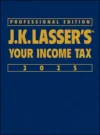IRA Rollover Period Extended Due to Fraud
An individual who takes a distribution from a traditional IRA has 60 days to roll it over to another IRA or qualified retirement plan. If the rollover is not completed in time, the distribution is fully taxable (assuming no nondeductible contributions were made). However, the IRS may extend the 60-day rollover period for various reasons, such as errors by the postal service or a brokerage firm. Recently, the IRS granted a waiver of the rollover period where the IRA owner was a victim of fraud (Letter Ruling 202244029). She was swindled by hackers posing as employees of her bank’s fraud department and, pursuant to their instructions, she transferred her IRA to them. When she discovered the fraud, and reported it to a local agency, it was after the 60-day rollover period.
Remember, if you experience difficulties in timely completing a rollover, you may be able to use a self-certification process; no IRS letter ruling is needed. For details, see Rev. Proc. 2020-46.
Installment sale
A sale of property that allows for tax deferment if at least one payment is received after the end of the tax year in which the sale occurs. The installment method does not apply to year-end sales of publicly traded securities. Dealers may not use the installment method. Investors with very large installment balances could face a special tax.



